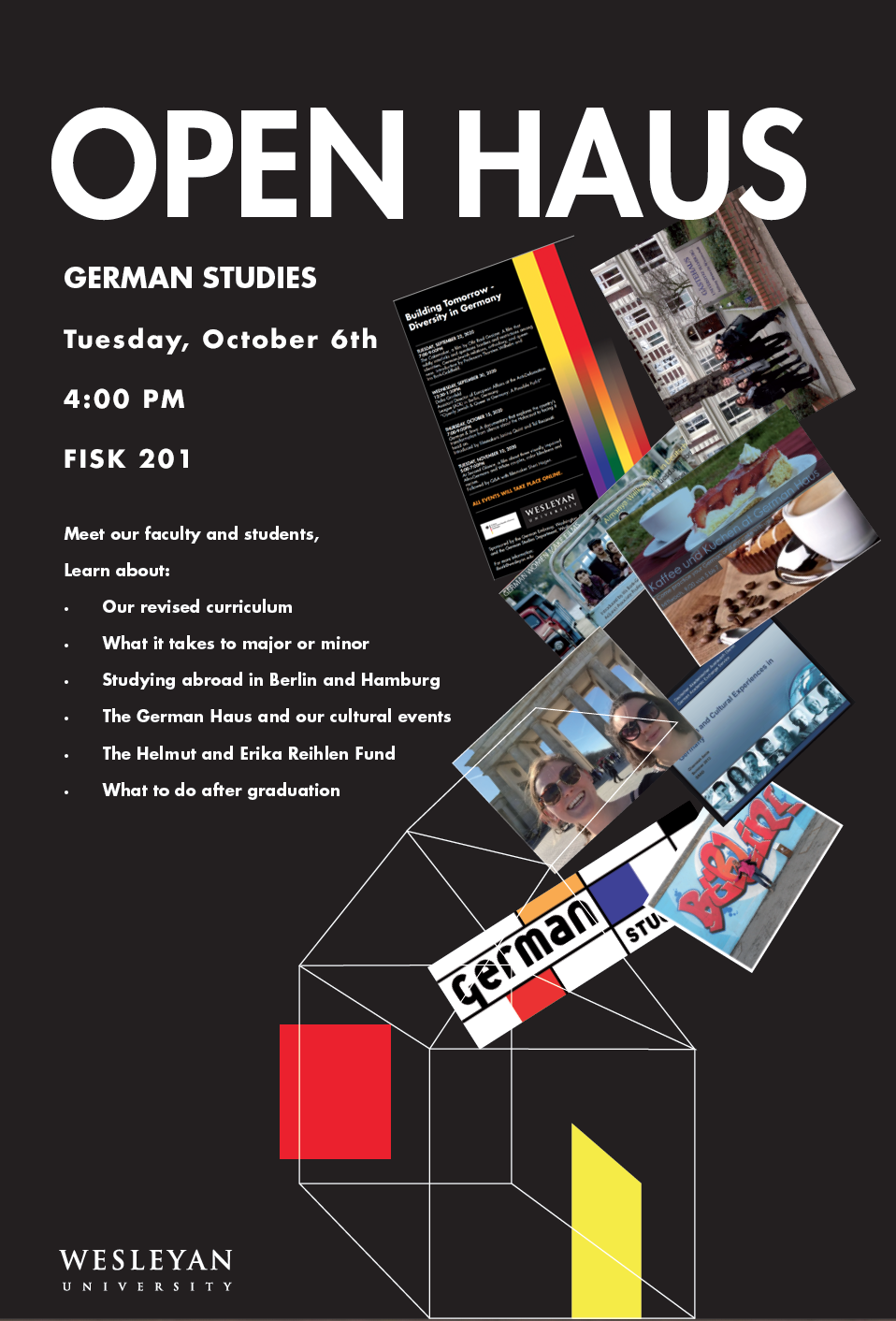
https://wesleyan.zoom.us/j/94819852066?pwd=OG90TEFHYXlxbHppZG9vSm9WVW41QT09
Meeting ID: 948 1985 2066
Passcode: 921831
More information about the film and its filmmakers http://germansandjews.com/

https://wesleyan.zoom.us/j/94819852066?pwd=OG90TEFHYXlxbHppZG9vSm9WVW41QT09
Meeting ID: 948 1985 2066
Passcode: 921831
More information about the film and its filmmakers http://germansandjews.com/


Dalia Grinfeld, Assistant Director of European Affairs at the Anti-Defamation League (ADL) in Berlin, Germany, will host a talk and Q&A about “Openly Jewish and Queer in Germany: A Possible Path?”
Based in Berlin, Ms. Grinfeld manages ADL’s programs in Europe and supports European Jewish communities in their advocacy efforts. Earlier, she worked as a Policy Advisor for the Council Presidency of the European Union. She is actively involved in women’s rights and health issues, LGBTQI inclusion and innovative democracy. Her academic background is in Political Science and Jewish Studies, which she studied at the University of Heidelberg, Buenos Aires and Herzliya.
To REGISTER please click HERE
We will sent out the Zoom link a day prior to the event to all who have registered on the above link.
For more information, please contact Iris Bork-Goldfield or Thorsten Wilhelm.
This event is sponsored by the German Embassy in Washington D.C. and the German Studies department.
Juniors and seniors, join us for this information session to learn how you can spend a year in Germany after you graduate!
PRESENTER: Melissa Leung ’16, Majored in Economics, College of East Asian Studies (Chinese and Political economy), and Pre-med. Leung is currently working for IBM as a public sector consultant.
Read more about Melissa Leung ’16.
Wy Ming Lin ’16 also participated in this program and had this to say: I majored in German Studies and Neuroscience and Behavior. After Wes, I wanted to do something with both majors, so what better way to combine the two than by moving to Germany and pursuing some research opportunities? That’s exactly what I did through the Congress-Bundestag Youth Exchange for Young Professionals where I had the chance to spend a year in Leipzig. I did an internship at the Max Planck Institute there and worked with some amazing and brilliant neuroscientists who convinced me to keep studying in Germany. Currently, I am doing my MA in Tübingen and plan on continuing on with a PhD in Germany!

In addition, we offer this fall a tutorial that is cross-listed with ARHA for .25 credits on the Bauhaus. For more information, click on 100 Years Bauhaus: Discover and Experience the Making of Modern.